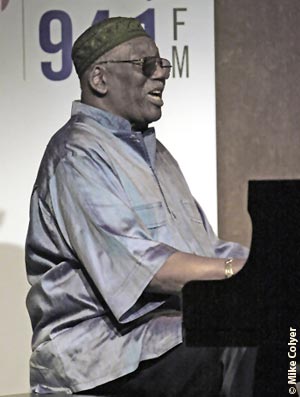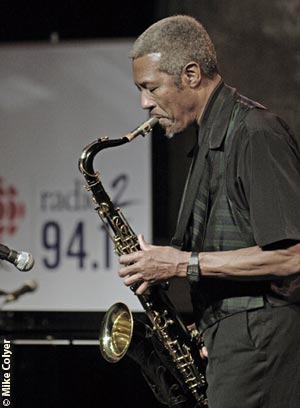| If you take away the African from Jazz, Blues, and Gospel, you have nothing left ...
Randy Weston's been offering such insights and wisdom for close to 60 years, and on this particular visit to Toronto — along with the empathic tenor saxophonist, Billy Harper — he grandly gifted our city with the sounds of Mother Africa and her progeny, the jazz tradition.
"The Berkshire Blues" — a favorite of this reporter — was melodious, modestly optimistic, and melancholy. As Harper's solo became deep and worrying, Weston's declarative right hand plinks! at once defined the blues' space and hit upon that sonic place where Monk and Duke intersect.
Weston and Harper played a complex music. The initial forms, melodies, and rhythms, were bare-boned, mesmeric, and at times dance-like, but through the passage of time, the spiritually-based music revealed itself as a sensitive blend of tradition, ancestral echoes — Monk, Duke, Fats Waller, Willie the Lion Smith, Morocco, Randy Weston, Northern Africa, Billy Harper, the deep-blue blues — and a direct form of communal sharing in the duo's deep well-spring of creativity.
Before he played "African Sunrise", Mister Weston briefly spoke about '... ancient civilizations, the Egyptians, and the sound of the planets — and the power of music. Music is a universal language. But you can't touch or taste or see music ... ' When they played, once again, the ancient mysteries were deeply intoned, and large patches of silence received the gathering turmoil of Weston's left hand tremolo.
In "Tangiers", Harper's exultant cries grew cyclic over textured bag pipe tones and an inner bass pulse. It was a Coltrane cry, and it was Billy Harper. And Randy Weston played the piano like Duke, like a drum.
|
|

Randy Weston |
|

Billy Harper |
|



